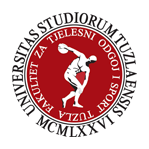LIFETIME EXERCISE IS ASSOCIATED WITH EUGONADISM IN AGING MEN: A PRELIMINARY INVESTIGATION
Keywords:
aging, androgen, eugonadism, exercise, hypogonadism, testosteroneAbstract
Testosterone is an important biological hormone, which displays a gradual decline with advancing age. Exercise training has been proposed as a first-line therapy for biochemical hypogonadism (clinically low serum testosterone). As such, the present investigation compared the incidence of biochemical hypogonadism (total testosterone <11.3 nmol·L-1) in a cohort of otherwise healthy lifelong sedentary men (SED [N=24], 63±5 years), compared with a positive control group of lifelong exercisers (LEX [N=16], 60±5 years) using electrochemiluminescent immunoassay. Fisher’s exact test identified significantly more of the SED group were classified as biochemically hypogonadal than the LEX group (8/24 compared to 2/16 respectively; p<.05). These data provide preliminary evidence that exercise may protect against the development of low testosterone defined hypogonadism in aging men.
Downloads
Downloads
Published
How to Cite
Issue
Section
License

This work is licensed under a Creative Commons Attribution-NonCommercial-NoDerivatives 4.0 International License.






